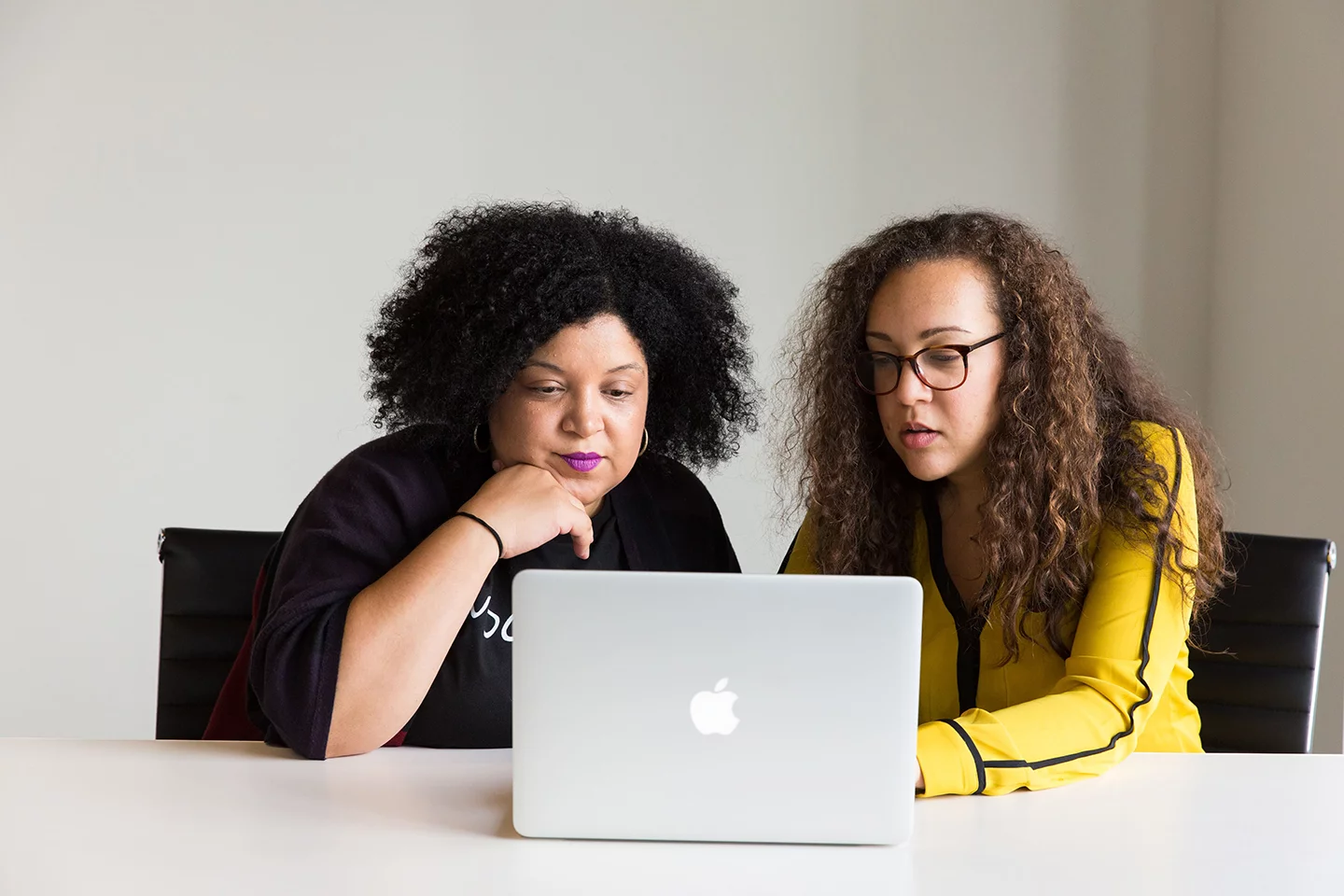Mursion’s weekly Future of Work Virtual Roundtable Series recently hosted Jennifer Rogers, an experienced learning executive with a demonstrated history of strategic workforce transformation and capability development, for a timely session entitled “Accelerating People Potential in an Era of Change.”
Below is an excerpt of Jennifer’s presentation with some key takeaways about how leadership must evolve and how technology can prove to be a powerful component of this transformation. You can also watch the full session, including a participant experiencing a live Mursion demo, on our YouTube channel.
Join us for our upcoming Future of Work sessions by signing up here. And, to experience Mursion’s virtual reality simulations and see for yourself how this platform can support your own business to achieve its leadership development and other business goals, schedule a demo today.
“What we’re going to talk about in the short amount of time that we have together today is accelerating people’s potential. In particular, accelerating that people potential in an era of change because we are in an era of change. Usually, when I have these conversations with people, prior to this year, we’ve all had an awareness that change was coming, but I think this year more than ever that’s right in our world that we live in today. My passion is creating and cultivating true ecosystems that help develop people.
How do we captivate and cultivate the workforce forward recognizing that they have amazing potential and amazing diversity in talent already within them?
How do we captivate and cultivate the workforce forward recognizing that they have amazing potential and amazing diversity in talent already within them?
How to Be an Effective Leader in a Changing World
The first thing that I’ll share has to do with our changing world. We are in an era of change. These are some megatrends that are relevant to us. Shifting economic power, climate change, resource scarcity.
Technological breakthrough, demographics, social change, rapid urbanization, the world is changing. It’s really important that we have a strategy that we can utilize to see what kinds of skills we have in our workforce already and how to proactively accelerate those for the future. On top of our changing world, work is changing and it’s changing quite a bit.
The ways in which we organize ourselves as organizations is changing, which means jobs are different. You might work with different people than you worked with before in different types of groups, composed of different types of jobs and even a different workforce composition. That leads to changes in the organizational structures that we work in and the ways in which we interact with people in those organizations and definitely changes in mind shift and changes in our C-suite and HR with regards to the ways in which we need to function in this changing workforce.
What Does People Potential Mean in Today’s Workforce?
As we start to talk about accelerating people potential in an era of change, there are three main areas that we tend to look at to make that happen. One is to reduce variation in processes.
People are not processes. There’s the difference there. What are the processes within our organization, how do we standardize those, how do we make those repeatable and really make it clear what we’re expecting?
Secondly, how do we recognize the diversity in people? Actually acknowledge that they are different and that’s a great thing for our organizations, particularly from a strategic standpoint in terms of where our organization needs to operate today and tomorrow.
How do we recognize the diversity in people?
Then finally, re-imagining the workplace, how that works, and what we need to do from a skill perspective there? It is really important to understand we want to make things as repeatable as possible. Reduce variation in things like processes, equipment, all of those kinds of things that really need to be standardized.
We need to make that information and those skills accessible to our population, but we need to acknowledge that people are variable and we actually want them to be variable. That’s the strength of what people bring to the table. That’s what brings about that creativity and initiative-taking entrepreneurship.
That’s the strength of what people bring to the table. That’s what brings about that creativity and initiative-taking entrepreneurship.
One size doesn’t fit all at all in this scenario. We have to find ways to reduce that variation but introduce those skills to people that may have very different backgrounds. They may have very different types of work. They may have very different work environments. They may work in very different parts of the world. How do we deal with that and how do we make that happen?
Then look at the data from a common perspective in terms of, am I actually moving linear? Am I shaping behavior? Am I changing behavior, and how does that look in the different populations and the ways in which I’m reaching them?
Harnessing Technology to Better Understand Our Organizations
I want to introduce you to a few things that are going on in the space from a tech perspective and a process perspective that help us with this. The first thing has to do with the ways in which we’re using artificial intelligence to help us understand our organizations and the capability matrices that need to exist. I say matrices, plural because we are in a dynamic situation. What we’re looking for is to hold multiple hypotheses at the same time, from an organizational standpoint, what if our organization goes this way, or it goes this way, what does that mean for us? What skills do we actually need? What capability do we need and how does that work?
There’s all kinds of amazing tech out right now that helps you to do that large scale. AI that can pour through things like whatever you want, job profiles, white papers, publications, thought leadership, parallel industries, anything that you need to give you a lot of insights around the capability that you might need in your organization. What are the disciplines that we need within our organization, both now and in the future? And, what are the skills or the behaviors that need to be part of those disciplines? You can actually have the AI give you multiple scenarios, validate it from a human perspective and actually scenario plan the capabilities for your organization, which is really cool.
What are the disciplines that we need within our organization, both now and in the future?
The other thing that you can do is start to connect those needs to people in the ways in which they need them. Lots of things that exist around the idea of learning content management systems, the ways in which I can build something one time and I can output it and version control it everywhere that people access it.
Utilizing Tech to Build Social Skills
When we get to social process skills, which are really important as well, we have to look at this differently. One of the things that I’m excited to work on in the space is the ways in which we can actually utilize data in technology to be able to look at the skills that a person has, and how those are shaping and growing over time. We can also start to personalize VR in particular from these experiences, whereby the next time that someone comes through interaction, we actually look at their capability profile and modify the interaction based upon the skills they already have so we’re not using our time to send everybody through the same experience. We’ve got a good idea of who they are, and what makes them tick.
Once we’ve standardized the expectations, and the capability matrices, basically telling us all the different scenarios that could play out in our organization, and what skills we might need, the other thing we have to do is look at is what we already have, which I think is really interesting. Sometimes I feel like, we get into some doom-and-gloom when we talk about future of work. In the sense of all these skills are changing, and we don’t have the people and everything like that. I would submit we have more than we think, but we have never been able to see it before. I firmly believe that people are the strategy of a sustainable organization. One of the key goals is really just to make them visible for who they are, and what makes them them.
I firmly believe that people are the strategy of a sustainable organization.
I’ve been really passionate about looking at that data and finding ways to actually get to know who a person is, instead of treating them all the same. Crowdsourcing, the people that work with them also giving an opportunity to actually say, “Yes, I’ve seen that person demonstrate this skill in real practice.” That gives us an idea and from an ongoing basis, how fast people are developing, and whether they actually are demonstrating those skills in the workplace, which is really pretty cool. Also, continuous feedback. For those of you who are modifying your performance management processes, to actually provide continuous feedback in the flow of work, this is a place where we’ve started to pull that in as well.
That’s a great place to think about pulling that through as well. What this really leads to is a couple of different things, one personalizing experiences for people. How do I reach someone exactly where they’re at, not treat everyone the same, and actually accelerate their potential by hitting it right where they are and where they need to be and so we can link those two experiences and actually provide really personalized learning for people based on where they are. We can also infer potential skills. This is pretty cool because the AI says, and the person validates that they have a certain skill, the AI can also say, ‘Because you have this skill, I think you might also have this skill.’ Which is really powerful for organizations and for individuals. Because it gives us an idea of how we can accelerate people into skills faster, and sometimes even gives people visibility to skills they didn’t even really have a conscious view that they had, which is pretty cool.
Shaping Your Organization’s People Potential Strategies
I think the technology is at a place in which we actually can reach people where they’re at and stretch them to the limit of who they are and what they can become.
I think the technology is at a place in which we actually can reach people where they’re at and stretch them to the limit of who they are and what they can become.
Innovation is really a core capability as we look at organizations and that dynamic and flexible nature. The difficult piece, I think, is defining what behaviors you’re looking to see that signify innovation to you. Because innovation is a broad topic. I think sometimes we get very focused on some of the technical aspects of innovation. We know there’s a whole other piece to that, collaboration, the ways in which we can have self-awareness, self-regulation, the ways in which we partner and team, all different aspects with regards to innovation itself.
One of the things I would challenge you all to do is, have you articulated what specific behaviors that you’re trying to shape and change, and how those would manifest in different disciplines across your organization? Because if you haven’t, it’s a great thing to think about how AI can help you.”
Subscribe for the latest Mursion articles and updates.
By clicking the sign up button above, you consent to allow Mursion to store and process the personal information submitted above to provide you the content requested. View our Terms and Conditions.




